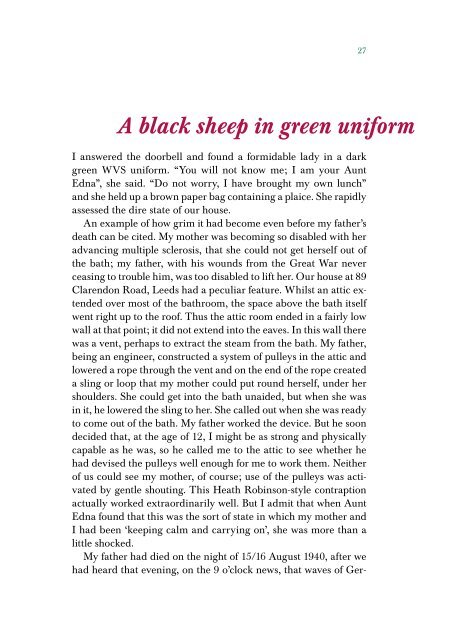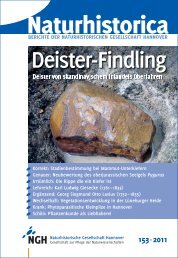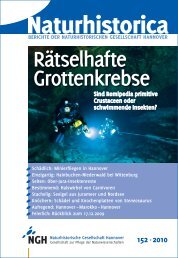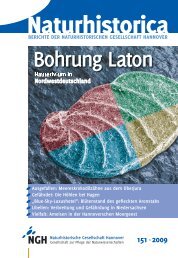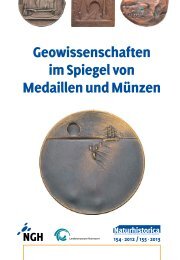Roger Atkinson - Blackout, Austerity and Pride
Blackout, Austerity and Pride – Life in the 1940s is a book written primarily from actual experience. It tells how an alert and intelligent boy, effectively orphaned at the age of 13, sets out to gain a foothold in life. Aided by some resourceful women, he unites a thirst for knowledge with a growing passion for places and buses and a strong sense of duty. http://www.memoir1940s.org.uk/
Blackout, Austerity and Pride – Life in the 1940s is a book written primarily from actual experience. It tells how an alert and intelligent boy, effectively orphaned at the age of 13, sets out to gain a foothold in life. Aided by some resourceful women, he unites a thirst for knowledge with a growing passion for places and buses and a strong sense of duty.
http://www.memoir1940s.org.uk/
You also want an ePaper? Increase the reach of your titles
YUMPU automatically turns print PDFs into web optimized ePapers that Google loves.
27<br />
A black sheep in green uniform<br />
I answered the doorbell <strong>and</strong> found a formidable lady in a dark<br />
green WVS uniform. “You will not know me; I am your Aunt<br />
Edna”, she said. “Do not worry, I have brought my own lunch”<br />
<strong>and</strong> she held up a brown paper bag containing a plaice. She rapidly<br />
assessed the dire state of our house.<br />
An example of how grim it had become even before my father’s<br />
death can be cited. My mother was becoming so disabled with her<br />
advancing multiple sclerosis, that she could not get herself out of<br />
the bath; my father, with his wounds from the Great War never<br />
ceasing to trouble him, was too disabled to lift her. Our house at 89<br />
Clarendon Road, Leeds had a peculiar feature. Whilst an attic extended<br />
over most of the bathroom, the space above the bath itself<br />
went right up to the roof. Thus the attic room ended in a fairly low<br />
wall at that point; it did not extend into the eaves. In this wall there<br />
was a vent, perhaps to extract the steam from the bath. My father,<br />
being an engineer, constructed a system of pulleys in the attic <strong>and</strong><br />
lowered a rope through the vent <strong>and</strong> on the end of the rope created<br />
a sling or loop that my mother could put round herself, under her<br />
shoulders. She could get into the bath unaided, but when she was<br />
in it, he lowered the sling to her. She called out when she was ready<br />
to come out of the bath. My father worked the device. But he soon<br />
decided that, at the age of 12, I might be as strong <strong>and</strong> physically<br />
capable as he was, so he called me to the attic to see whether he<br />
had devised the pulleys well enough for me to work them. Neither<br />
of us could see my mother, of course; use of the pulleys was activated<br />
by gentle shouting. This Heath Robinson-style contraption<br />
actually worked extraordinarily well. But I admit that when Aunt<br />
Edna found that this was the sort of state in which my mother <strong>and</strong><br />
I had been ‘keeping calm <strong>and</strong> carrying on’, she was more than a<br />
little shocked.<br />
My father had died on the night of 15/16 August 1940, after we<br />
had heard that evening, on the 9 o’clock news, that waves of Ger-


